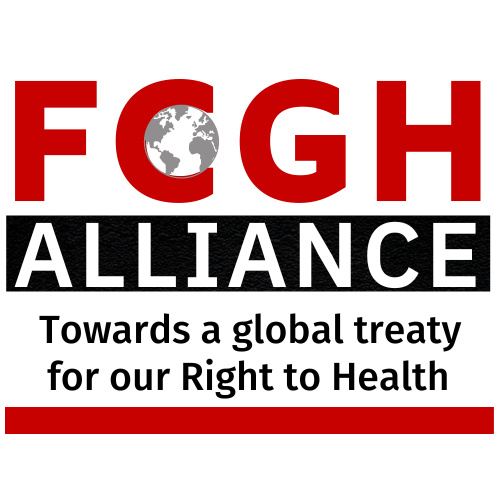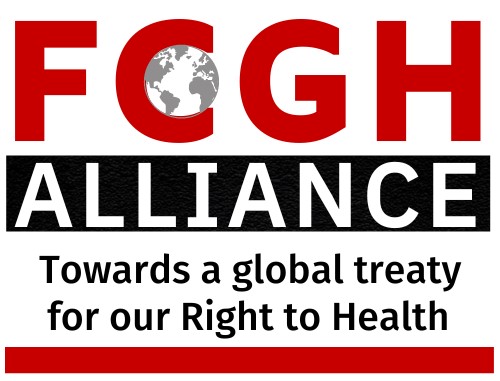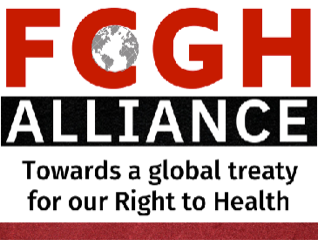by Eric A. Friedman and Martín Hevia
Originally published in Think Global Health
Human rights violations are central to lapses in global health security. These violations extend far beyond when governments prohibit doctors from publicizing vital health information. When a country fails to tightly regulate trade in wildlife and live animal markets—despite their danger as infectious disease incubators—it is not acting consistently with the highest attainable standards of health. When a country fails to make a systematic effort to eliminate health inequalities, which undermine disease prevention and control, it is violating the fundamental right to health. When wealthy countries use their economic power to corner the global market of scarce medical supplies and equipment and medicines, despite obligations within the UN Charter and the International Covenant on Economic, Social and Cultural Rights to cooperate towards universal human rights for all, they are defying human rights mandates.
Yet despite the centrality of human rights violations to global health security, human rights are now at the periphery of the global health security conversation. As the global community begins to explore how to strengthen global health security following COVID-19, we should move human rights, particularly the right to the highest attainable standard of health to the center of the post-COVID-19 global health architecture. And the Framework Convention on Global Health, a proposed global treaty based on the right to health—which encompasses both health care and underlying determinants of health like safe water, nutritious food, and a healthy environment—and aimed at national and global health equity, should be at that architecture’s core.
We have both been part of the leadership of the movement for a Framework Convention on Global Health. Eric has been involved for a decade, leading earlier global platforms on and helping shape the contours of the proposed treaty. Martin, in turn, an early supporter of the framework convention, is currently chair of the Framework Convention on Global Health Alliance, a global NGO based in Geneva.
We believe that COVID-19 demonstrates why it is critical that not only health and human rights advocates, but anyone who cares about health and justice puts their voice behind this treaty.
The framework convention would encompass three broad areas. First, it would advance central principles of the right to health.
- Non-discrimination and equality, requiring equal access to health care and health services, with proactive measures to ensure equal access to marginalized populations.
- Participation, the right of people to have a meaningful say in decisions that affect their health
- Accountability, with government acting transparently, monitoring progress towards its commitments, providing remedies for past violations of the right to health, and acting to prevent future violations.
Second, it would contribute to resourcing the right to health, including financial and human resources. And third, it would encompass the full spectrum of actions that affect the right to heath. It would span the social determinants of health, cover public and private sectors, and address both domestic and global obligations. It would reinforce the right to health in these ways by providing greater specificity to existing standards and states’ obligations, catalyzing specific mechanisms and actions towards advancing the right to health, and establishing an overarching framework of national and global accountability.
These features would make the framework convention a powerful tool for preventing and responding to global health threats. For example, it could mandate that states, working with civil society organizations and communities, develop a suite of accountability mechanisms and strategies. These might include public education on the right to health, village health committees with community members trained in human rights, and structured dialogues between community members, civil society, and policymakers.
These and other accountability measures, like transparency requirements and joint external evaluations—akin to a process used for the International Health Regulations (2005)—would help ensure responsive health systems that are able to carry out public health functions, like testing and surveillance. Such health system would be less likely to collapse under the weight of heath care surges during outbreaks, and more likely to have adequate levels of personal protective and equipment like oxygen concentrators. A national and international health funding framework and its accompaniments, such as nationally determined timelines towards framework targets and annual civil society—government dialogues, could further contribute to health system strengthening.
The Framework Convention on Global Health would include standards for inclusive, meaningful participation in developing health-related policies and programs. As people see policies and programs that reflect their views and are tailored to their needs, their trust in health authorities should grow. Trust will also come from greater accountability. As we have learned, such trust is one of the most important assets during a pandemic.
Participation will have other benefits. Convention standards would emphasize the participation of marginalized communities, including for pandemic planning. The next time a pandemic strikes, governments and communities would be prepared to meet the needs of these populations. For example, they would ensure that all needed accommodations are in place for people living with disabilities, and that migrant workers are not neglected nor undocumented immigrants excluded. Critical health information will reach linguistic minorities. Countries would increase resources to underserved communities, who are most vulnerable during disease outbreaks and stand to have the poorest care.
In protecting the right to health throughout all sectors, the framework convention could advance guidelines on when countries should conduct right-to-health impact assessments, and how countries should respond.
States could conduct these prospective analyses of how any policy, program, or project that may significantly affect the right to health does so, and take measures to protect against any risks. For instance, as governments update policies meant to protect against the spread of antimicrobial drug resistance, the assessments may catalyze more assertive responses to this grave and growing threat to health. Reviews of quarantine authorities and procedures should lead to assurances that quarantined individuals will have medicines and nutritious food. Governments buying large quantities of critical medical equipment in short supply, or medicines and vaccines, would need to account for the potential impact on the rights of people in other countries.
These are only some of the ways that the Framework Convention on Global Health would contribute to global health security. Certainly even the best architecture is not an ironclad guarantee against another devastating pandemic.
But this framework convention as the foundation of rights-based reforms, mechanisms, and instruments would offer us what we have been missing—a global health infrastructure that will give humanity the best chance of preventing infectious disease outbreaks, or effectively containing outbreaks before they reach devastating proportions. We owe it to ourselves, and to coming generations, to create this foundation, and to bring the Framework Convention on Global Health to fruition.
Eric A. Friedman is a global health justice scholar at the O’Neill Institute for National and Global Health Law in the Georgetown University Law Center.
Martín Hevia is dean and associate professor at the Universidad Torcuato Di Tella School of Law in Buenos Aires, Argentina and vice president of the Iberoamerican Association of Law Schools.





